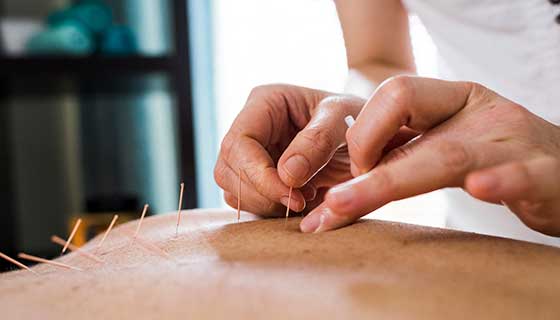
Image Source: Google
Eastern medicine has a rich history that dates back thousands of years, offering a holistic approach to healing that focuses on the mind and body connection. From acupuncture to herbal medicine, these ancient practices have been used to treat a wide range of physical and mental health conditions. In this article, we will explore the benefits of Eastern medicine therapies and how they can help promote overall well-being.
The Principles of Eastern Medicine
Yin and Yang
- Eastern medicine is based on the concept of Yin and Yang, which represent the dualistic nature of the universe. Refer Link: https://redcranewellness.com/
- Yin is associated with qualities such as cold, darkness, and rest, while Yang is associated with qualities like heat, light, and activity.
- Imbalances in Yin and Yang are believed to cause illness, and Eastern medicine seeks to restore harmony between these opposing forces.
Qi
- Qi, or vital energy, is another fundamental concept in Eastern medicine.
- It is believed that Qi flows through the body along meridians, and disruptions in this flow can lead to disease.
- Practices like acupuncture and qigong aim to restore the proper flow of Qi and promote healing.
Benefits of Eastern Medicine Therapies
1. Acupuncture
- Acupuncture involves the insertion of thin needles into specific points on the body to stimulate energy flow and promote healing.
- It is commonly used to treat pain, digestive issues, stress, anxiety, and more.
- Studies have shown that acupuncture can help reduce inflammation, improve circulation, and boost the immune system.
2. Herbal Medicine
- Herbal medicine uses plants and natural substances to treat various health conditions.
- Herbs are often combined into formulas that are tailored to individual needs.
- Herbal medicine can be used to support the immune system, improve digestion, and balance hormones.
3. Tai Chi
- Tai Chi is a gentle form of exercise that combines slow movements, deep breathing, and meditation.
- It has been shown to reduce stress, improve balance and flexibility, and enhance overall well-being.
- Tai Chi is often recommended for older adults as a way to improve mobility and prevent falls.
Eastern Medicine for Mental Health
Mind-Body Connection
- Eastern medicine recognizes the strong connection between the mind and body.
- Practices like meditation, acupuncture, and yoga are used to help calm the mind and reduce stress.
- By promoting relaxation and mindfulness, these therapies can improve mental health and emotional well-being.
Stress Reduction
- Chronic stress can hurt both physical and mental health.
- Eastern medicine therapies offer effective techniques for managing stress and promoting relaxation.
- Regular practice of techniques like meditation and qigong can help lower cortisol levels and reduce anxiety.
Integrating Eastern and Western Medicine
Complementary Approaches
- Many people are now turning to integrative medicine, which combines Eastern and Western approaches to healthcare.
- By using the best of both worlds, patients can benefit from a comprehensive treatment plan that addresses both the symptoms and underlying causes of illness.
- Integrative medicine can be especially effective for chronic conditions that may not respond well to conventional treatments alone.
Collaborative Care
- Collaboration between Eastern and Western healthcare providers can lead to more personalized and effective care for patients.
- By working together, practitioners can share knowledge and expertise to develop holistic treatment plans.
- This collaborative approach can help patients achieve better outcomes and improve their overall quality of life.

